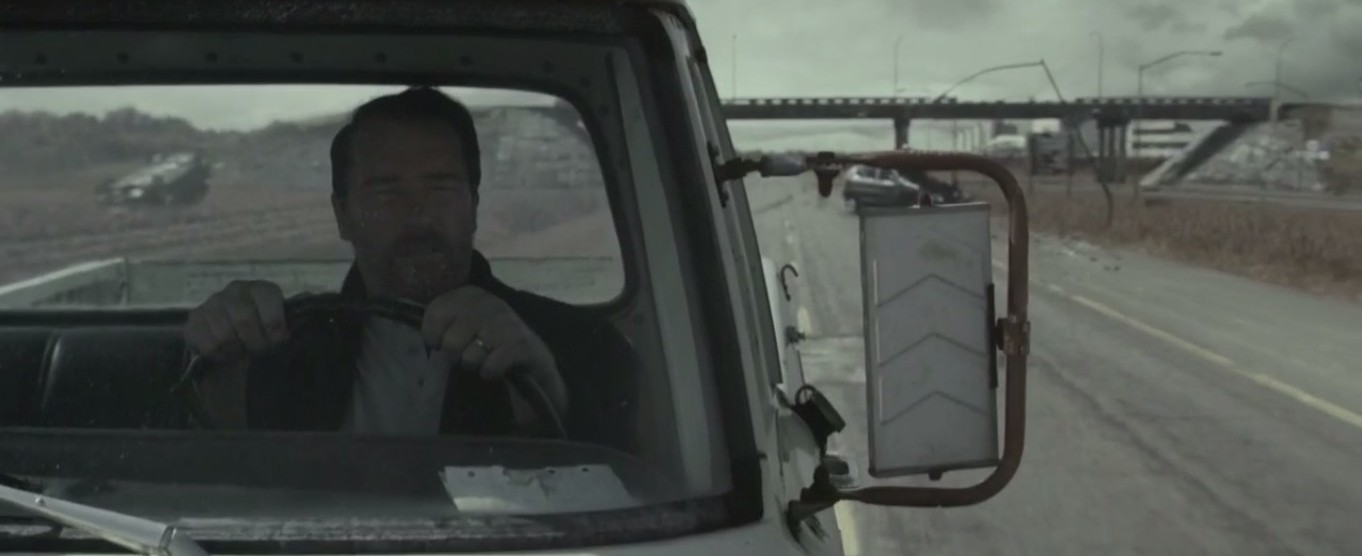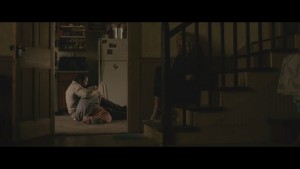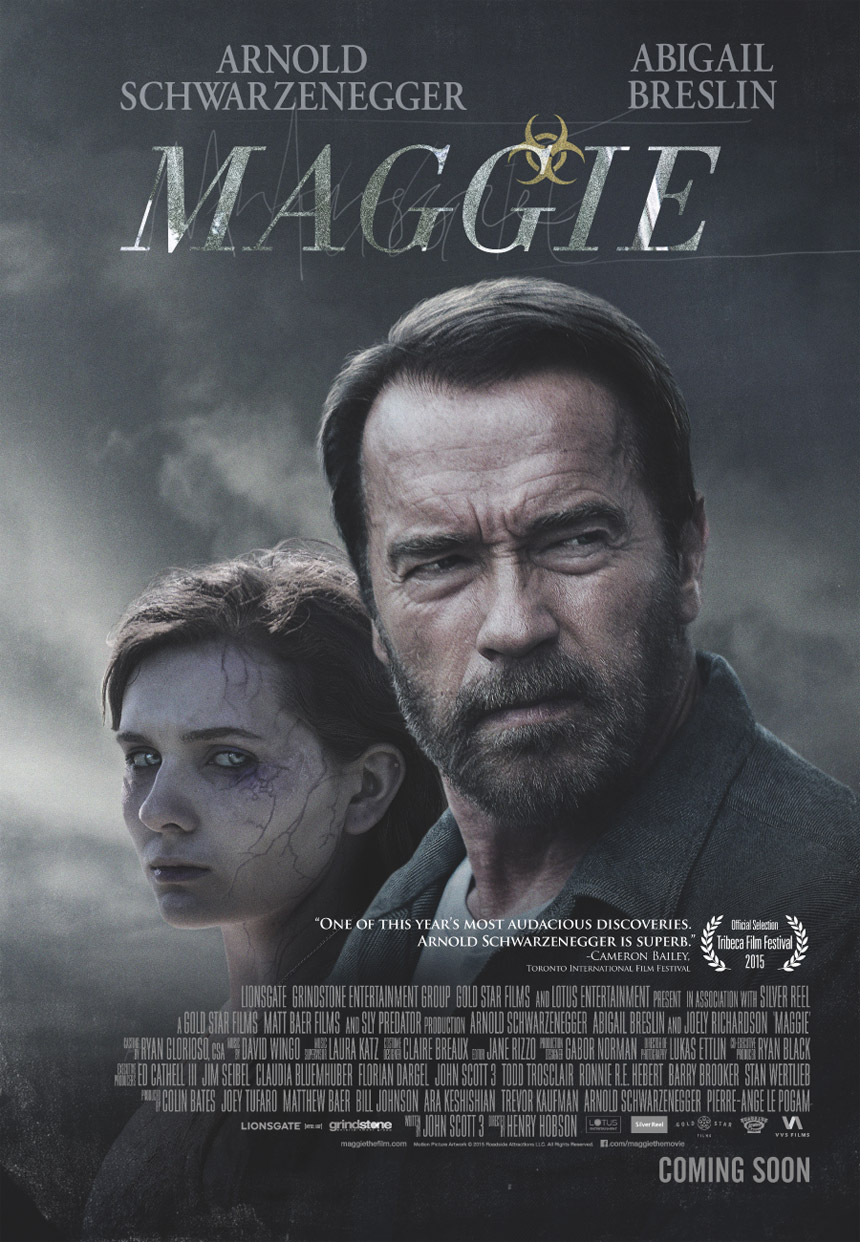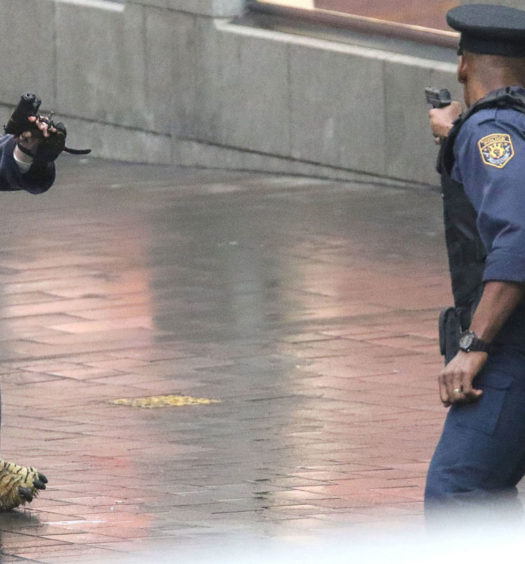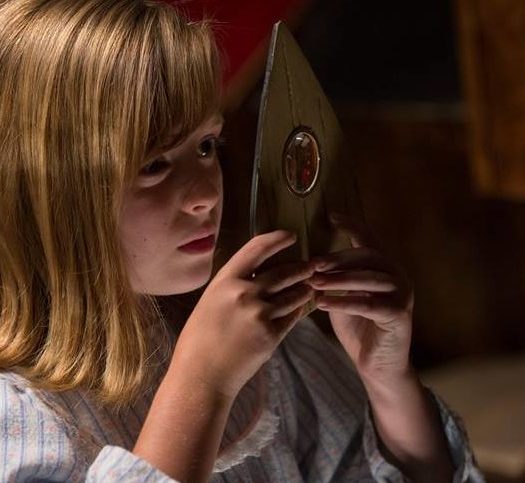Not what you'd expect from an Arnold Schwarzenegger zombie movie.
Maggie is not your typical zombie movie. It’s not even your typical horror movie; it’s not really even horror at all. But thinking about what Maggie isn’t distracts you from what the movie really is, and it’s an honest-to-God American family drama. It just happens to take place after a zombie apocalypse; and for that reason, it’s one of the most interesting, and best, additions to the zombie film canon in many years.
The best zombie media, be it films, books, or comics, all use zombies as a metaphor to reveal more about humanity. Maggie goes about doing this in one of the strangest (and strongest) ways I’ve ever seen. The film takes place years after a zombie plague devastated America (and presumably the rest of the world, but, Maggie only shows us a little slice of life, which is one of its great strengths). However, life has begun to return to a sense of normalcy in the America of the film. Zombies and the infection they spread are an unfortunate fact of life; the government tells farmers to burn the fungus that leads to infection. The infection is a slow burn, an eight-week process in which necrosis takes over the victims. However, those bitten are safe to be around during those eight weeks, and common practice is to send the afflicted home to spend their last weeks with their families, who must turn in the infected to government “quarantine” before the eight weeks are up.
This worldbuilding is accomplished quickly, but not in a rushed way, in the film’s opening minutes, as we are introduced to our main characters: Arnold Schwarzenegger’s Wade and his daughter, Abigail Breslin as the titular Maggie. Wade drives his beat-up pickup to the hospital to pick up his recently-bitten daughter, and government radio broadcasts and hospital doctors explain all we need to know. The reason Maggie works, and works so well, is because the movie plays the situation as straight as it can. This is a movie about a father deals with the inevitable loss of his child; and how a child deals with the reality of terminal illness, with zombie infection being used as a metaphor. Schwarzenegger, grizzled and grey, plays against type here: he kills only a handful of zombies in the movie, and never relishes the deed. Zombies in Maggie were once your neighbors, and soon, they will be your loved ones. Wade’s character arc is fascinating. The masculinity and strength he has relied on to survive in this harsh world is useless against the advance of his daughter’s illness. Every time he brandishes his double barrel shotgun or attempts to use his hands to solve his problems, nothing improves. Schwarzenegger’s performance is simply wonderful to watch; the actor, whose early career lampooned his relative inability to emote, displays a masterful understanding of the conflict between Wade’s desire to act and his ultimate powerlessness. He takes what many actors might consider a pulpy role and mines it for the truly deep human emotion it contains. Watching the last action hero struggle with his inability to solve the problem facing him is transfixing, and any parents who have struggled with the illness of their child will identify with him.
I would be remiss if I lauded Schwarzenegger’s performance without mentioning Breslin. The 19-year-old actress approaches her role her with a similar seriousness to Schwarzenegger. She depicts Maggie as a kid who doesn’t understand what’s happening to her in the same way the adults around her do, but understands it on the deepest, most important level: that it will be her end. She rages against it, runs from it, like children do with their problems; finds solace in her peers who are like her, just like children do. It’s incredible to watch her find the truth in a fictitious role here. After her performance here, I’m excited to see what projects Breslin turns up in next.
Maggie’s setting and imagery contributes to the close-to-home feel of the movie in an essential way. The film uses washed-out lighting to depict the days the character spend in their old-fashioned American farm homestead: golden light shines through cornfields. In some moments, everything seems almost normal, and that’s what makes Maggie so effective. The film depicts classic Americana, like fields of grain and pickup trucks, in a post-apocalyptic light: farmers burn their crops to prevent the spread of infection, and everything feels run-down and grey. All of the film’s aspects contribute to a very real-feeling zombie drama. It asks you what you would do if zombies were a real fact of life that ordinary families have to deal with. The film works because it hits so close to the heart. Any fan of using horror tropes to explore human drama should check out this film. They won’t be disappointed.
Maggie [Review]
Heartbreaking
A heartrendingly realistic take on what a zombie infection would do to a normal American family, Maggie succeeds on the back of two incredible performances from Arnold Schwarzenegger and Abigail Breslin.

